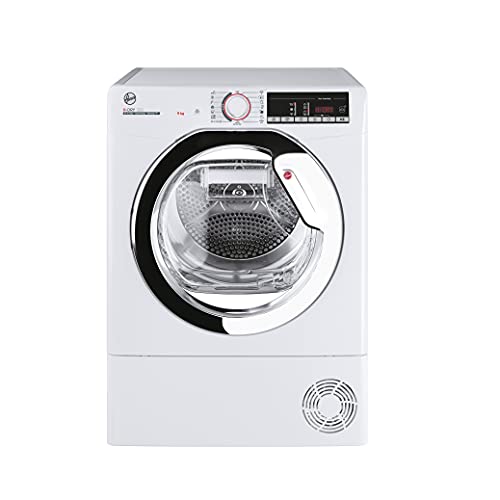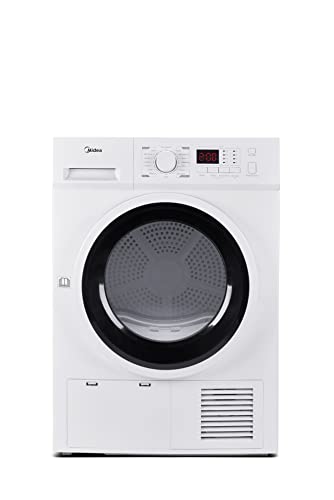The 10 Scariest Things About Dryers Heat Pump
페이지 정보

본문
 Why Buy a Dryer With a Heat Pump?
Why Buy a Dryer With a Heat Pump? Like standard electric or gas dryers, heat pump dryers warm air before pumping it into the drum. However, unlike them the warm air isn't released into the vents which can lead to issues like clogged or energy-wasting lint traps.
Like standard electric or gas dryers, heat pump dryers warm air before pumping it into the drum. However, unlike them the warm air isn't released into the vents which can lead to issues like clogged or energy-wasting lint traps.Since ventless heat pumps cool the air to eliminate moisture, they can be installed wherever. Learn more about their other advantages.
Energy Efficiency
While traditional vented dryers use huge amounts of energy to run, heat pump dryers use only a small amount of energy. The reason is that they don't need to generate their own heat as do conventional dryers. They rely instead on a closed loop refrigerant loop, similar to an air conditioner. The air that flows through the evaporator coil of the dryer warms it and absorbs moisture. The moisture then flows into a pan that can be empty manually or connected to an emptying tube. The cooled air is then circulated through the coils, causing the cycle.
According to Energy Star, heat pump dryers use around two-thirds of the electricity per load as a conventional dryer. They also do not require venting, which eliminates the potential for lint accumulation within a dryer vent, reducing the chance of fire. Ventless dryers can be used in any space that has an electrical outlet. This makes them ideal for small apartments and spaces.
In addition, the energy efficiency of a heat pump dryer translates into lower utility costs. That's especially important given the increasing cost of electricity. The dryers that use heat are generally more expensive in the beginning, but they pay for themselves in two years due to their lower operating expenses.
Electric heat pump dryers use less energy than condensing dryers that don't use heat pumps. Their cycle times are more lengthy than conventional dryers.
If you are serious about reducing your energy usage then a dryer with a heat pump is the best choice. It is the most efficient way to do laundry and can be powered by electricity produced by solar energy or other renewable sources. If you're on the path to a completely electric home then a heat pump clothes dryer should be a component of the home. It can be powered by the same renewable energy source as other appliances like refrigerators and washers. It could help you reach your goal of having an all-electric house by 2050.
Convenience
Many dryers heat pump feature moisture sensors that help to prevent drying too long and save time and energy. Some dryers heat pumps also have anti-wrinkle technology and smart settings that are controlled by smartphone. Some ENERGY STAR certified models are able to recycle the water used to remove humidity from the air during the drying process which can save you money on disposal costs.
Heat pump dryers also offer more flexibility than vented or ducted clothes dryers since they don't require venting. This makes them ideal for a variety of places in the home, including basements and attics. The only downside is that they take longer to dry clothes than traditional electric dryers because they don't require as much heat.
The heat pump dryers utilize the same air to dry clothes, instead of using hot air like conventional electric or gas dryers. A compressor pressurizes refrigerant within one set of coils to release heat, then it flows through an expansion valve and into another set of coils, where it cools and absorbs moisture. The process is repeated until the load is dried completely. This is much more efficient than traditional dryers which waste energy by heating the air continuously to dry laundry.
While heat pump dryers are a green choice but they can be expensive at first. However, they'll pay for themselves over time by reducing your utility costs. Manufacturers often offer incentives and Dryers Heat Pump rebates to offset the initial expense of a heat pump clothes dryer.
Some dryers with heat pumps require a special drain hose that is used to flush the water used to evaporate moisture from the air which can increase the total cost of the device. Although this isn't an enormous drawback, it may be a deal breaker for some buyers.
The heat pump dryers offer many other advantages that are worth a look. They are gentle on fabrics, helping to extend their lifespan and look good in the process. They are also more efficient in energy use which can reduce your energy bills by up to 28% when compared with conventional dryers.
Durability
These dryers cut down on energy costs and prolong the life of clothes by recycling heat from the air. They employ the same method to remove water from clothing as vented models, but do not let out humid air outside. They recycle air that has been chilled. They generally take longer to dry than traditional vented dryers since they operate at lower temperatures.
These dryers don't require a vent and can be placed in any space with electricity and water. This makes them ideal for small homes, accessory dwelling units (e.g., an apartment above the garage), and additions. Some models are compact enough to fit into tight spaces, and a lot can be stacked with washers to give you more flexibility. Larger ventless heat pump dryers, which can earn the ENERGY STAR label, have more capacity.
These appliances tumble clothes inside an heated drum, much like traditional vented dryers. The hot drum heats as the clothes spin and squeezes out moisture. This water is then absorbed in a separate tank or drain hose, which has to be drained manually or automatically. Certain dryers require a water tank to be drained every few cycles. Others have a self draining tank which requires less maintenance.
Heat pump dryers are more complex and require more maintenance than vented dryers. They also have higher repair costs. Despite these limitations they're worth the purchase for Dryers Heat Pump homeowners who wish to lower their utility costs and save money over the course of time.
Your laundry habits as well as your budget are the two most important aspects to consider when deciding if you should invest in a heat-pump dryer. If you're a frequent laundry user who prefers short drying times, then a traditional vented dryer is the best option. If you're looking to save money over the long term and don't want drying times of 2.5 hours, a heat-pump dryer is a great choice. These dryers can save you up to $2,600 a year in energy costs, and last twice longer than traditional vented models.
Noise
The dryers that use heat pumps tend to be quieter than conventional dryers, however the noise levels vary between models and brands. Understanding how noise is measured and comparison of noise ratings can help consumers select the model that is most suitable for their preferences and needs. If noise is a major concern it is advisable to consider using the dryer during times when the household's activity and sleep patterns are likely to be less disturbed. The washer dryer with heat pump could also be placed in a place that reduces vibration and isolated from the floor using mats made of rubber or anti-vibration pads.
The grinding or squeaking sounds could be a sign that the dryer drum is strained and struggling to turn. To avoid this, follow the instructions provided by the manufacturer for the maximum capacity of the dryer and do not overfill it. It is recommended to balance larger items, such as comforters or blankets with smaller ones may increase performance and decrease the sound of squeaking.
The sound of the dryer's heat pump that gurgles is normal. It is a sign that it is working as intended. If the sound gets more intense or continues to occur, it may be a sign that the dryer's lint filter or vent is blocked and needs to be cleaned.
Regularly cleaning the lint filter and dryer vents is vital to ensure that the heat pump dryer is working properly. This will prevent excessive noises during the drying cycle, and will prolong the life of the appliance.
Some heat pump dryers advertise that they can run on the standard 120 volt, 15 amp electrical circuits. This is ideal for older homes that have limited electrical outlets. This could be a deceitful marketing because most electric dryers require 220-volt circuits that have 30-amps in order to function properly. Additionally running a heat pump dryer on a standard circuit may increase the chance of fire and electric shock. It is recommended that a professional electrician install a heater in a house that is already in use.
- 이전글Fold In Treadmill: 10 Things I'd Like To Have Known Earlier 24.06.03
- 다음글Treadmill Incline Foldable Tools To Streamline Your Daily Lifethe One Treadmill Incline Foldable Trick Every Person Should Learn 24.06.03
댓글목록
등록된 댓글이 없습니다.